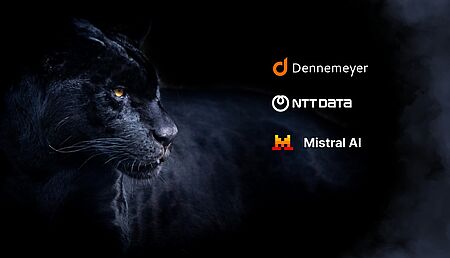
Double trouble: IP disputes over pals, twins and copies
Intellectual Property (IP) is a game of exclusivity, meaning asset owners often have to fight to maintain their stake in the worlds of expression and inventiveness. This month saw the launch of a patent lawsuit in Japan involving colorful monsters, the start of California tech trademark tribulations and the end to a German photographer's copyright dispute against artificial intelligence (AI) developers.
No such thing as an easy battle
When "Palworld" exploded onto the online gaming scene in January of this year, many observers expected Nintendo to take legal action to protect the IP underlying its 12-figure-USD Pokémon franchise. While some adduced the possibility of copyright infringement in light of the visual similarities between the Pal characters and their Pokémon equivalents, the reality is that this would be very difficult to argue in court.
The burden of proof for Nintendo in a copyright case would be onerous, given many Pokémon are based on naturally occurring elements: plants, animals, rocks, etc. Since it is not possible to exclusivize concepts that replicate nature, the Japanese video game company would have to show that "Palworld" developers Pocketpair deliberately imitated specific Pokémon designs and did not merely draw inspiration from the same source.
This argument, of course, has yet to materialize; instead, the much less-expected avenue of patent enforcement has taken the gaming sphere by storm. The complaint was filed at the Tokyo District Court on September 18, 2024, alleging infringement of multiple patents, though the specific patents in question were not disclosed, even to the defendant.
The gaming community has reacted to the announcement with regret, viewing the assertion of patents in this way as a threat to innovation and creative iteration. Patents are rarely awarded for game mechanics, but when they are, the result can be a widespread curtailment of the subject matter. Take the example of the patent on loading-screen minigames from Namco (later Namco Bandai). By the time of its full-term expiration in 2015, loading screens had become so short as not to benefit from minigames. More recently, Warner Bros. was awarded a patent in 2021 for the lauded "Nemesis system" from 2014's "Middle Earth: Shadow of Mordor." Despite finding popularity among gamers, developers are wary of implementing a similar system where non-playable characters adapt their attitude toward the player based on "remembered" in-game events or past interactions.

Video game patents can generate additional revenue via licensing agreements but, by the same token, may also keep innovative solutions out of the hands of independent developers and their playerbases.
Notwithstanding these instances from the United States, Japan is the exception rather than the rule when it comes to the statutory recognition of software patents, meaning the current litigation's outcome is unlikely to have a strong influence on patent office decisions or juridical interpretations elsewhere. That said, in having the world's third-largest video games market, Japan represents a major and growing producer and consumer of interactive media, where any chilling effect experienced by the domestic industry is prone to extend internationally.
Quarreling twins: trademark lawsuit between Gemini AIs
As one of IT's most influential companies and a dominating market presence, Google is no stranger to controversy. To wit, France's Autorité de la concurrence (Competition Authority) fined the technology company €500 million in July 2021 and a further €250 million in March of this year for disadvantaging press agencies on its platforms.
Both penalties concerned breaches of measures designed to create a fairer information economy, although the more recent also implicated the undisclosed use of copyrighted works to train Google's AI. Bard, as the model was previously known, and another system, Duet, were merged in February 2024 to create Gemini. However, the change of name and branding has not distanced the AI from allegations that it impinges on others' IP rights.
On September 11, 2024, fellow California-headquartered business Gemini Data filed suit against Google for trademark infringement. Appearing before the United States District Court for the Northern District Of California, the lawsuit claims that Google exploited its status as a "corporate giant wielding overwhelming power" to "knowingly and willfully" infringe on the smaller company's trademarks.

AI technology has become a global sensation, projected to reach $621 billion USD in value this year. With such a lucrative market opening up, competition among companies is fierce and likely to intensify.
Founded in 2013, Gemini Data provides a cloud-based platform that allows users to gather and process data from disparate sources. Businesses can then query its AI in natural language to gain insights or extract conclusions. Crucially, Gemini Data holds registered marks in the United States in Nice classes 09 – recorded computer software for use in business enterprise big data collection, transmission, visualization, integration, analysis, management, and storage using machine learning and artificial intelligence – and 42 – software as a service (SaaS) for the same purposes.
The likelihood of confusion resulting from these prior marks was one reason why Google's trademark applications for "Gemini" were refused by the United States Patent and Trademark Office (USPTO) in May and August this year.
"Shortly after the [May 9] USPTO refusal was issued, Gemini Data was contacted by an 'anonymous' entity regarding the possibility of acquiring rights to the 'GEMINI' brand," continues the lawsuit, with the plaintiff coming to the conclusion that the purchase offer was made on behalf of Google.
Gemini Data is seeking an injunction against Google's use of the "Gemini" name as well as monetary awards, including punitive and exemplary damages. Thus, if the lawsuit is successful, Google will need to rebrand its AI offering a second time.
AI vs. artistry: Germany considers copyrights
What do a celebrated photographer and a massive AI training dataset have in common? Not much, unless you are Robert Kneschke, a German stock photographer whose images found their way into LAION 5B, the information storehouse powering AI models like Stable Diffusion. Kneschke was not exactly thrilled when he discovered his carefully crafted photos were being fed to algorithms without his permission.
So, naturally, it was lawsuit time. Filed in Hamburg's Regional Court, Kneschke claimed that LAION e.V., the non-profit behind the dataset, violated his copyrights. In the creative world, using someone's work without asking is akin to taking someone's car for a spin because you liked the color. You might have a great time, but the owner will not be pleased.

Copyrights grant artists control over the reproduction, exhibition and sharing of their works with some key limitations. Under European Union and German law, accessing and "copying" artistic works is permitted if it is for scientific research.
LAION's defense? They said it is all in the name of science, citing an exception in German copyright law that allows text and data mining for research. Sounds good in theory, but the reality gets a bit murky when you throw in collaborations with commercial AI companies like Stability AI. Suddenly, the non-profit's argument was beginning to look shaky. LAION argued that Kneschke's images were not locked down tight enough with "machine-readable" copyright protections. According to them, only a super-technical blockade, like a robot.txt file, could have stopped their hungry AI scrapers. Kneschke, on the other hand, said his stock photo agency had already prohibited automated data collection in its terms — more like a polite but firm "no trespassing" sign, which LAION apparently chose to ignore.
On September 27, the court ultimately sided with the defendant. In a landmark decision, the Hamburg Regional Court ruled that LAION's use of Kneschke's photos fell within the legal bounds of Germany's text and data mining exception. Since the dataset was used for scientific ends and there was no proof of a decisive commercial influence on the research organization, AI remains free to digest creative works.
Filed in

Dennemeyer partners with Mistral AI and NTT DATA to deliver a secure, adaptable AI foundation for the digital future of IP services.



